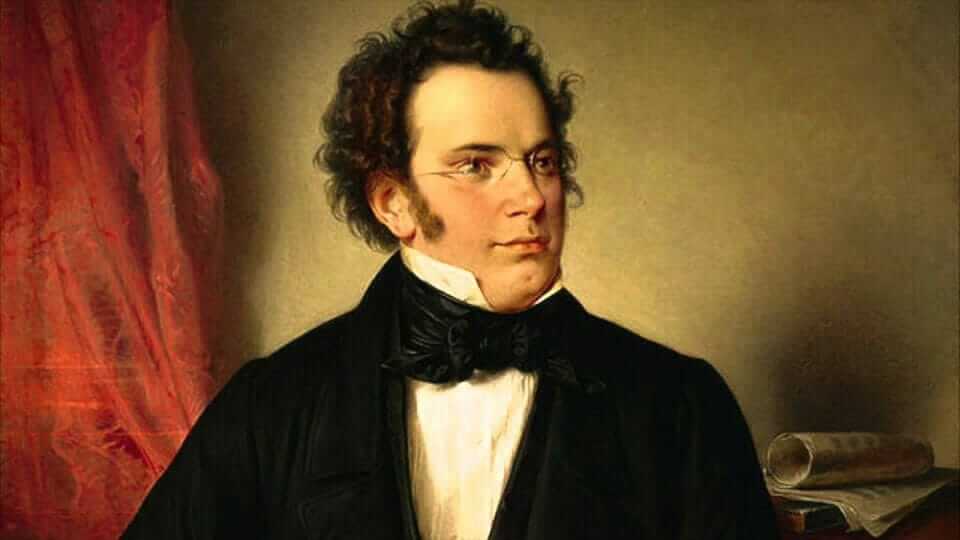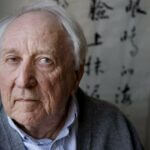
“Why, after all, should it be ‘pro-test,’ and not ‘de-test’? Protest once meant to give testimony in pro of something good, over and against something corrupt.”
Editor’s note: This is intended as a follow-up to the author’s May 18th piece “The Two-faces of Classical Music: the Bureaucratic Tyranny of Music Schools.”
Consider this not so much a sequel to my previous article as a coda, the kind of “oh and by the way” postscript which is now necessary to append to any statement that is not either grovelingly orthodox or politely uncertain. Although it is no longer safe to say “Methinks you doth protest too much” (because if we have learned anything in the past year it is that there is no such thing as an excess of protestation), perhaps one might say we suffer from an excess of explanation. A joke is not a joke if it needs explaining, after all. As E.B. White quipped, an explanation of a joke is rather like the dissection of a frog: One may understand it better, but one kills it in the process. Similarly, an argument is hardly an argument if the argument itself needs arguing. (One is catching on to the tedium of it, I think.) Such is the tedium of our society, in which even the lines dividing satire and sincerity have dissolved, as reality becomes ever more absurd while humor dies the death of a thousand qualifications.
Still, this social obligation to explain oneself is not far from my main subject here. The obligation arises from a new presupposition that all are guilty until some explanation can be given—at which point the explanation becomes implacable proof of guilt. (Invariably, it will be considered some form of bourgeois-splaining.) The formula is as simple as it is impervious: We are all sick even if asymptomatic; we are all bigots even if silent philanthropists. If anywhere possible, here is where protest is indeed too much. (At this point one can almost hear Kafka guffawing over his typewriter.) Nevertheless, since no one can ever become unguilty—or put another way, quite unlike Yeats, once “all hatred driven hence” the soul does not recover innocence—our mumbling attempt at explanation is our only atoning act. Like dissections, our explanations serve to expose and criticize these corruptions, in ourselves and in our culture.
Good criticism, contrarily, arises always from a place of love—love for the good, true, and beautiful.
I long ago resolved never to criticize anything for the purposes of destruction. Any fool can declare something to be bad; or as my Appalachian ancestors would say, “Any jackass can kick down a barn.” It takes no wisdom, skill, or virtue to destroy. Good criticism, contrarily, arises always from a place of love—love for the good, true, and beautiful. Whether such criticism is directed toward a piece of art, or indeed an institution of art, it must have no intention to tear down but, rather, to identify precisely that which is worthy of love. Only on the strength of this should criticism expose whatever is, by contradistinction, worthy of rebuke. Any destructiveness in such criticism is, therefore, only the careful immolation of dross.
This is by no means my personal philosophy of criticism. It is what criticism was always meant to be. If one has enough patience to consider the word, he might also realize that “protest” itself once shared the same signification. Why, after all, should it be “pro-test,” and not “de-test”? Protest once meant to give testimony in pro of something good, over and against something corrupt. Not that we would care to remember. Our amnesia admits only the bad and ugly. Our protests and criticisms aim only to detest and destroy.
I once read an essay of music criticism to a friend. It was a critical essay, I told her, on the chamber works of Schubert. The essay brimmed over with admiration and keen insight, both musical and philosophical, propelled from underneath by a life-affirming spirit. When I had finished reading and had laid aside the book, I looked over to find my friend seemingly perplexed, possibly even troubled. For an instant I assumed she disagreed with the assessment of Schubert, and I prepared myself for an all-out brawl to defend, if not the bespectacled Austrian, at least his C-major quintet.
She said, “Well that didn’t seem very negative.”
“You think it should have been?”
“No, I mean, to me Schubert is fantastic,” she said. “But you said it was criticism.”
“It is criticism,” I said. “Criticism doesn’t necessarily mean something bad.”
She looked as yet unconvinced and picked up the book to thumb through, while I sipped cold coffee and Beach House piped gloomily through speakers somewhere in the ceiling. A moment of perfectly Schubertian irony the man himself may have appreciated. Perhaps she could not reconcile her associations of the term criticism with this critic’s unashamed veneration. Could that be criticism? Or perhaps, more primordially, she wondered what Schubert himself wondered of der leiermann: If music can offer any real meaning, can that meaning be purely good? To think that criticism should aim to give an affirming answer to such a question seems nearly discordant enough to be heresy.
But precisely this kind of criticism had long been the intimate affair of academic scholarship, when universities were portals into the good and beautiful and everything else worth loving. Had, that is, until the 20th century separated truth from meaning and meaning from words, and critical became a synonym for deconstruction. Now we murder to dissect, and dissect not to understand but to expose the disemboweled rot we then unironically claim would have been fatal. Language, now, is merely a facade hiding structures of power, and what are structures good for besides demolition? Whether it is the language of words or the language of music, grammar and syntax are but constructions to be used as instruments for the performance of power. As such, they have no meaning in themselves beyond how they correlate to that power, be that the power to oppress or the power to liberate.
Nothing, in other words, can be considered for its own sake, but only for how it contributes to the revolution against power. The study of Schubert, like the study of anything, is only useful insofar as it forwards the great project of liberation. (Liberation from the likes of Schubert, of course.) We must all become revolutionaries, if we are not to be considered class enemies. If one does not—if one does not subject every artwork, statement, and sigh to the project, like frogs to dissection—one is not part of the solution but, rather, part of the problem. All of our priorities must be ordered thus, in much the way Molotov assessed the irresistible virtues of his wife: “Clever, beautiful, and above all a great Bolshevik.”
It is this totalitarian impulse that demands everyone participate in the great program of progress, toward some imagined utopia which hides just beyond the horizon of the future. Nothing in our culture remains exempt from this equation of power. An old music history professor of mine put it most succinctly during a lecture on Berlioz: “Art is just expressions of money and power.” “That’s what it is,” she said. Considering this, it is no wonder my friend was bewildered to discover something called “criticism” which, far from doing the work of destruction, finally had something praiseworthy to say. This kind of criticism, which seeks out goodness and beauty, is not merely outmoded and irrelevant; it is condemned as a hindrance to progress.
In writing my critique of the Cleveland Institute of Music, I did not at all violate my resolve never to criticize for the purposes of destruction. It should go without saying that my six years there were among the richest of my life, and for them I am most grateful. But it must be said that this richness was, nearly in total, thanks to a few rare professors who fit that antiquated, irrelevant model of criticism. They taught purely from a place of love for their subjects, and their unequivocal brilliance was ever tempered by humility. (One of them would frequently say, “My job is unimportant. It’s not like I’m doing heart surgery or saving lives.” That is one of their few statements I would eagerly refute.) They opened up, for me and their other students, worlds of truth and beauty to which we would never have otherwise gained access.
But if they are hindrances to progress, while they preserve the truly good and beautiful, then thank God for that.
They are not revolutionaries. They do not wish to see old relics dissected and great monuments knocked down. They do not make the endless explanations and thousand qualifications necessary to justify their work to the revolutionary project. Mostly, they wish to mind their own business. Because of this, I cannot credit their names here (nor would they wish me to) in thanks for the inestimable gift they have given me and countless others. If so they would be marked as enemies of progress—not because they have some unsavory political allegiance but indeed because they have none. But if they are hindrances to progress, while they preserve the truly good and beautiful, then thank God for that. In truth it means they are hindrances to destruction.
Here, then, are the two faces of classical music. One is a public face, chin forward, proudly marching into an imagined future, leaving behind the smoking remnants of all its hindrances destroyed. (This is the face often seen on posters, with determined brows and glimmer-sheen smiles and bold red font.) The other face is the one not seen. It goes unnoticed because, like the farmer’s in The Angelus, it is cast in the shadow of the sun, bent in a grateful prayer for all that has been given, or otherwise bent in labor. There is no glamour or glory in that, no signal of virtue, and no revolutionary thrill. This is the face (history will remember) that is soonest to be despised, soonest to be depressed into mud by boots on that great forward march to progress.
I am entreated by the first to join this march into the future, and leave behind the rest. I have been taught by the second how to cherish what has been passed down, and to be grateful. If indeed I must choose one for my own mask, which one should I don?.
Justin Hall is a writer, cellist, and host of The Notion Club Podcast. He studied music performance at the Cleveland Institute of Music, and his current work explores issues of musicology and philosophy, with a commitment to identifying and celebrating the true, good, and beautiful.











